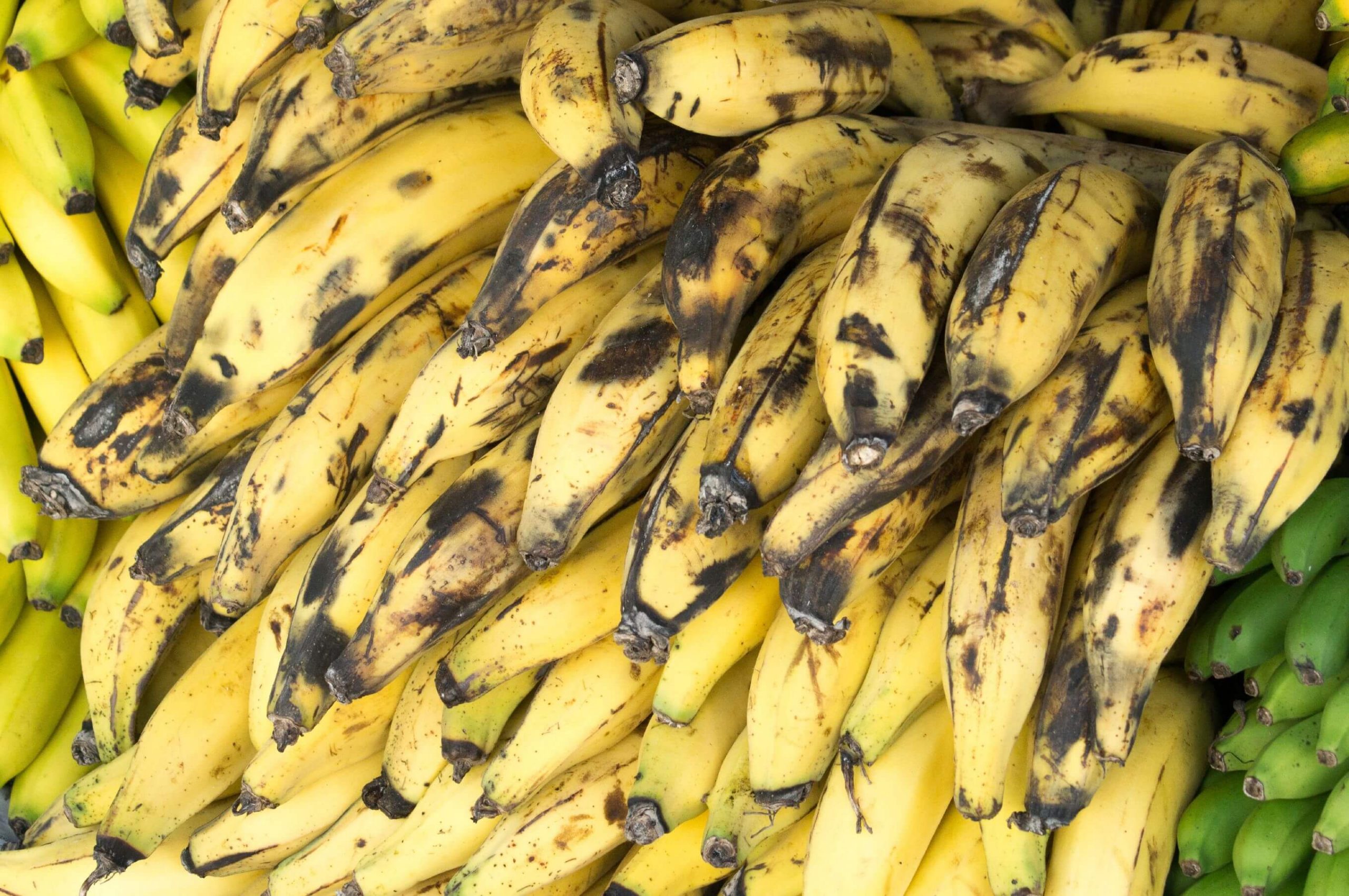Grow Your Own Plantains in Ghana with High-Quality Seeds from Wigmore Trading
Grow Your Own Plantains in Ghana with High-Quality Seeds from Wigmore Trading
Are you ready to embark on a deliciously fruitful adventure? Look no further! We have an exciting opportunity for all plantain enthusiasts in Ghana. Introducing Wigmore Trading, your go-to source for high-quality plantain seeds that will set you on the path to growing your very own bountiful plantation. Get ready to savor the taste of success as we dive into the world of planting and nurturing this versatile tropical fruit. Whether you’re a seasoned gardener or a curious beginner, join us as we discover how you can cultivate thriving plantains right in your backyard in Ghana. Let’s dig deep and unlock the secrets to cultivating these mouthwatering delicacies with Wigmore Trading!
Introduction to Plantains and their Benefits
Plantains are a type of banana that is grown in tropical regions around the world. Ghana is one of the top producers of plantains, and they are an important part of the country’s cuisine. Plantains can be eaten cooked or raw, and they are a good source of vitamins and minerals.
There are many different ways to cook plantains, and they can be used in both sweet and savory dishes. Plantains can be fried, baked, boiled, or mashed. They can be used as a side dish or as an ingredient in recipes for stews, soups, and other main dishes.
Plantains are a good source of several nutrients, including vitamin C, potassium, and dietary fiber. They also contain phytochemicals that have been shown to have anti-inflammatory and antioxidant properties. Some research suggests that eating plantains may help to reduce the risk of certain chronic diseases, such as heart disease and diabetes.
How to Plant and Grow Plantains in Ghana
When it comes to planting and growing plantains in Ghana, there are a few key things to keep in mind. First of all, you need to make sure you have high-quality seeds. Wigmore Trading offers some of the best quality plantain seeds in Ghana, so be sure to check them out.
Once you have your seeds, it’s time to get started. The first step is to clear an area of land where you want to plant your plantains. Make sure the land is free of any rocks or debris that could impede growth. Then, prepare the soil by tilling it and adding some compost or manure.
Next, it’s time to plant your seeds. Plantain seeds should be planted about 2-3 inches deep and 3-4 feet apart. Once they’re in the ground, water them well and keep the soil moist until they germinate.
Once your plantains have germinated and are starting to grow, you’ll need to thin them out so that they have enough space to grow properly. Thin them out by snipping off the weaker seedlings at the base of the stem.
As your plantains continue to grow, water them regularly and fertilize them every few weeks with a good quality fertilizer. When they’re about 6-8 inches tall, you can start harvesting their leaves for use in cooking. And when they’re 2-3 feet tall, you can start harvesting their fruits for eating or cooking
What Type of Soil is Best for Growing Plantains?
When it comes to growing plantains, the type of soil you use can make a big difference in the success of your crop. Plantains prefer well-drained, sandy loam soils with a pH level between 5.5 and 6.5. If your soil is too heavy or clay-like, it may not drain properly and could lead to problems with your plantains. too much water can lead to root rot and other problems. It’s important to test your soil before planting to make sure it’s suitable for growing plantains.
Irrigation Systems for Plantains in Ghana
In Ghana, plantains are a staple food crop. There are two main types of plantains grown in Ghana, the “true” plantain (Musa paradisiaca) and the “false” plantain (Musa x paradisiaca). True plantains are larger and have a higher starch content than false plantains. False plantains are smaller and have a higher sugar content.
Plantains are grown throughout Ghana, but the majority of production is in the coastal areas. The main planting season is from October to December. Plantains are typically propagated by suckers or cuttings, which are planted at the start of the rains.
After planting, irrigation is necessary to ensure a good yield. There are various irrigation systems that can be used for plantains, including drip irrigation, sprinkler irrigation, and flood irrigation. Drip irrigation is the most efficient system and uses the least amount of water. Sprinkler irrigation is less efficient but still useful, especially in areas with high winds where evaporation is a concern. Flood irrigation is the least efficient system but can be used in areas with low rainfall or during droughts.
No matter what type of irrigation system you use, it’s important to water your plantains regularly during dry periods. If you live in an area with heavy rains, you may need to drain your field to prevent waterlogging and root rot.
Fertilizers and Pest Control Solutions for Plantains
When it comes to growing plantains, fertilizers and pest control solutions are essential for ensuring a healthy crop. Wigmore Trading offers high-quality seeds that are perfect for planting in Ghana. With the right care and attention, you can grow delicious plantains that will be the envy of your neighbors.
Fertilizers and pest control solutions are important for any crop, but they are especially important for plantains. Plantains are a tropical fruit that need plenty of nutrients to thrive. The right fertilizer will provide your plantains with the nutrients they need to grow strong and healthy.
Pest control solutions are also crucial for plantains. There are many pests that can damage plantains, so it is important to choose a pest control solution that is effective against the pests that are common in Ghana. Wigmore Trading offers high-quality pest control solutions that will keep your plantains safe from harm.
With the right fertilizers and pest control solutions, you can grow healthy and delicious plantains in Ghana. Wigmore Trading’s high-quality seeds and expert advice will help you get started on your journey to becoming a successful plantain farmer.
Where to Buy High Quality Seeds from Wigmore Trading
If you’re looking for high quality plantain seeds to grow your own plantains in Ghana, Wigmore Trading is the place to go. They offer a wide variety of seeds, including both traditional and hybrid varieties.
Wigmore Trading is a company that is dedicated to providing quality seeds to farmers in Ghana. They have a wide variety of seeds available, including both traditional and hybrid varieties. Their goal is to help farmers produce the highest yields possible.
When it comes to planting plantains, it is important to choose the right variety of seed. Wigmore Trading offers both traditional and hybrid varieties. Hybrid seeds are typically more expensive, but they can offer higher yields. Choose the type of seed that best suits your needs and budget.
If you’re looking for high quality plantain seeds to grow your own plantains in Ghana, Wigmore Trading is the place to go. They offer a wide variety of seeds, including both traditional and hybrid varieties. Choose the type of seed that best suits your needs and budget to get the most out of your crop yield.
Tips for Prolonging the Lifespan of Your Plantain Trees
When it comes to plantains, the biggest enemy is disease. To keep your trees healthy and prolong their lifespan, follow these tips:
-Never allow water to pool around the base of the tree. This can lead to root rot, which is fatal to plantains.
-Prune away any dead or dying leaves, stems, or fruit. This will prevent the spread of disease.
-Apply a fungicide to the leaves and trunk regularly. This will help prevent diseases such as black sigatoka (a type of leaf spot) from taking hold.
-Harvest plantains when they are fully ripe. Unripe fruit is more susceptible to disease and pests.
Conclusion
Growing your own plantains is a great way to ensure access to high-quality, nutrient-rich food in Ghana. With the help of Wigmore Trading’s reliable and affordable supply of plantain seeds, you can confidently start growing your own fruits and vegetables at home or on a larger scale for commercial purposes. As with any venture, it’ll take hard work and dedication to succeed but we have faith that you are up for the challenge!








Comments are closed.